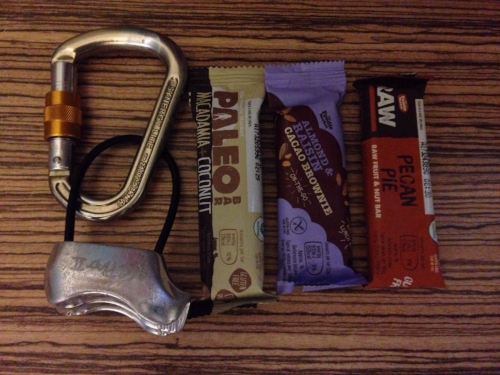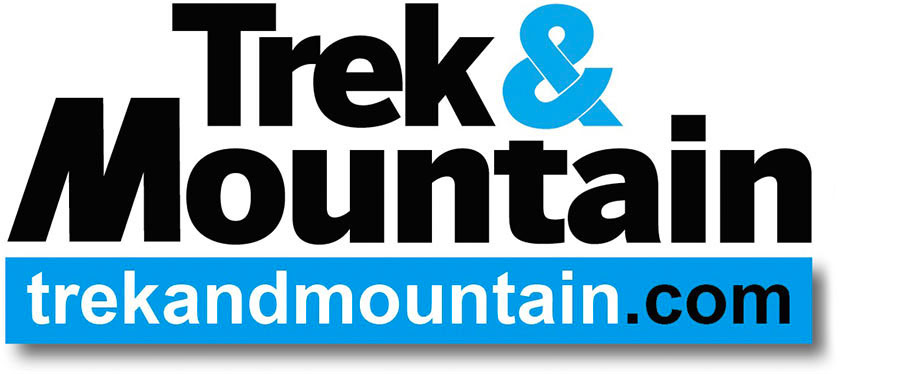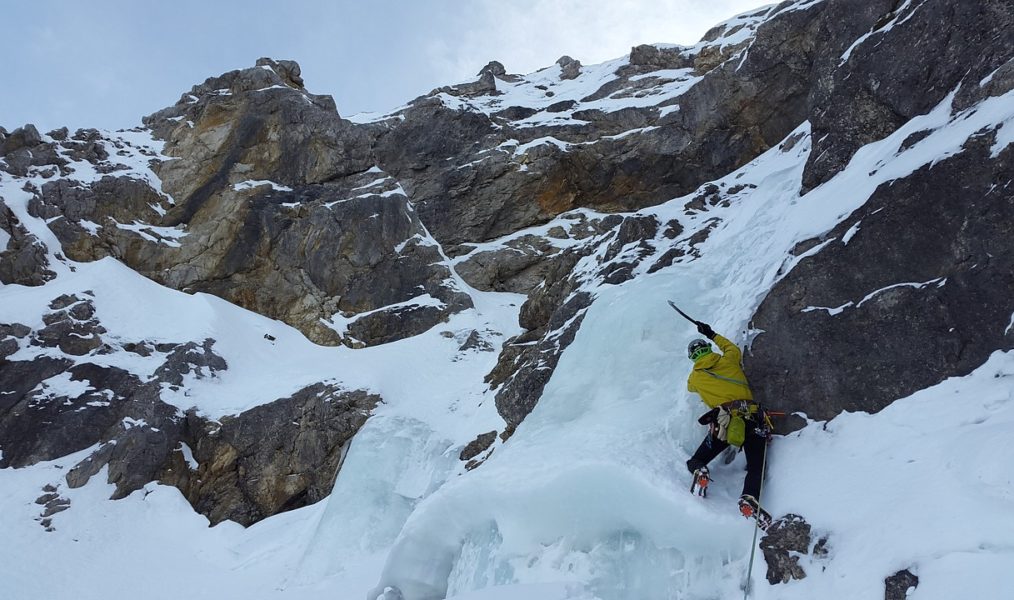This article refers to those long back to back mountain days that are not an expedition but perhaps a weekend trip or consecutive days out on the mountain but back to accommodation daily, where it is possible to take food supplies and/or purchase from a local shop.
The quantity that you will need to eat on your mountain days will vary depending on training and fitness level, duration of your day and effort required. The TIMING of eating is the most important factor for keeping up energy levels and helping maintain focus and concentration. Here are some nutrition tips to help you make the most of those big days out in the mountains.
Plan Ahead and be Prepared!
- Taking food and fluid for your day is as important as the kit you are packing.
- Write a shopping list of all the foods you like and can eat whilst on the hill and shop before your trip for supplies.
- Practise, practise, practise, what you need to take and this becomes a new habit, part of your packing!
Food and Snack Suggestions
- Some cereal bars are prone to freezing, the ones below have shown to hold out okay in the cold.
- Generally the pressed fruit/nut bars do not tend to freeze e.g. nakd, Aldis – The foodie market bars, raw and paleo bars (see pictured) come in a variety of flavours. They are also easy to open and inexpensive when compared to the branded ‘natural’ bars. Other options include chimpanzee bars, perkier. 9bar.

Examples of Non-Freeze Energy Bars
- Trail mix containing, dark chocolate, dried fruit (e.g. mangoes, prunes, apricots), mix of nuts (salted & unsalted).
- Wraps hold together really well in your back pack. For the filling include a source of protein and fat e.g. ham, ricotta cheese and green leaves or nut butter and banana or hummus, avocado and spinach or chicken, pesto and mozzarella.
- Use tin foil, instead of cling film to hold the wrap together, tin foil is easier to open when wearing a thick pair of gloves.
FUEL – Evening meal before a big day
Think of your big mountain day as your ‘competition day’. To ensure your muscles have a good supply of carbohydrate to fuel your day, make sure you include a source of carbohydrate in this evening meal. E.g. chicken and sweet potato or salmon steak and brown rice or mixed bean and lentil chilli.
This is not an excuse to eat what you like or over eat. Just be mindful of your portion size and eat enough.
DURING – Eat/drink in natural breaks of the day
Take enough food to help fuel your big day!
If you struggle to eat breakfast due to an early start, make sure you have something easy to eat en route in the car/transport to your destination e.g banana, oat and nut based cereal bar or a carbohydrate & protein shake. Then eat again before you set off on the walk in/ski/trail e.g. cereal bar or a banana.
To keep energy levels topped up, drip feed energy through out the day. Keep snacks in pockets close to your body to prevent freezing and pack food in easy to reach places in your bag.
Eat in the natural breaks of your day e.g. before the walk in, stops to put gear on/take gear off, bottom of the route, a moment to read the map, a long belay stance, de-rigging at the top of a route, before the walk back down to the car.
It is unlikely you will be able to meet your energy requirements on big days, what is important is that you eat little and often in the opportune moments and snack on high energy options. Aim for 200-300calories per snack.
RECOVERY – between multiple days
If you are out in the mountains for consecutive days in a row, eat as soon as you are off the mountain and start refuelling and recovering immediately.
This is when that 2hour window of recovery becomes helpful. Have a protein shake ready to drink or an extra wrap or bagel to eat when down off the hill.
Have something to hand! You have demanded a lot from your body, you need to replenish energy used from that day, help kick start muscle recovery and refuel to get ready for your next big day.
HYDRATION
Try to start the day hydrated! A good test is to check the colour of your urine, aim for a pale straw colour.
Same as eating, sip little and often and drink in opportune moments through out the day.
Adding an electrolyte to your drink can aid hydration during the day.
Take water in an insulated water bottle or a flask e.g. hot full sugar squash, green tea with added honey/sugar. Adding a flavour to water will encourage you to drink more and using full sugar squash/honey or sugar will provide an additional source of energy.
Make sure you keep drinking water through out the evening (in between that pint!) to rehydrate.
Example Nutrition Strategy for Big Mountain Days
6.00am Breakfast: Porridge made with full fat milk, sprinkled with seeds, nuts and drizzle of honey + protein shake
6.30am Drive to destination – hydrate sip regularly on water
7.00am Snack: Before setting of on walk in – banana
9.00am Gear change – Drink and eat a cereal bar
10.00am Bottom of the crag – eat a wrap, have a drink
Climb winter route
1.00pm Top of route – Drink + cereal bar
Walk back down
2.00pm Gear change – Eat some dark chocolate + cereal bar
4.00pm: Finish back at car
4.05pm Recovery Snack: Protein shake + 1 x banana
5pm Snack: Wholegrain bagel + peanut butter / muesli + greek yoghurt
7pm Evening Meal: (containing protein, healthy fat and good quality carbohydrate + plenty of green vegetables/salad e.g. salmon steak and sweet potato + green veg, homemade chickpea, lentil and spinach curry with chapati (not naan), frittata.
9pm Pre-bed Snack: Casein protein shake mixed with 1/2 cup of oats and 1/2 cup of berries OR Casein shake + muesli and 200g yoghurt
SUMMARY
- Keep it simple!
- Timing is important to keep energy levels up. Snack and sip little and often and in opportune moments.
- Vary your snack choices, flavours and fillings to avoid flavour fatigue.
- Aim for 200-300calories per snack.
- Try to avoid extreme hunger when off the mountain that lends itself to poor food choices by being prepared with good snacks choices to hand and having a protein shake immediately after.
- Take a multi-vitamin and mineral supplement if you feel your fruit and vegetable will be lacking on consecutive days.
 Rebecca Dent is a high-performance dietitian giving advice on clinical and sport nutrition. She holds an MSc in Sport Nutrition from Loughborough University and has worked with Jagged Globe, the NHS, UK Athletics Academy, England Hockey Academy and others. Visit her website for more information: www.rebeccadent.co.uk
Rebecca Dent is a high-performance dietitian giving advice on clinical and sport nutrition. She holds an MSc in Sport Nutrition from Loughborough University and has worked with Jagged Globe, the NHS, UK Athletics Academy, England Hockey Academy and others. Visit her website for more information: www.rebeccadent.co.uk






